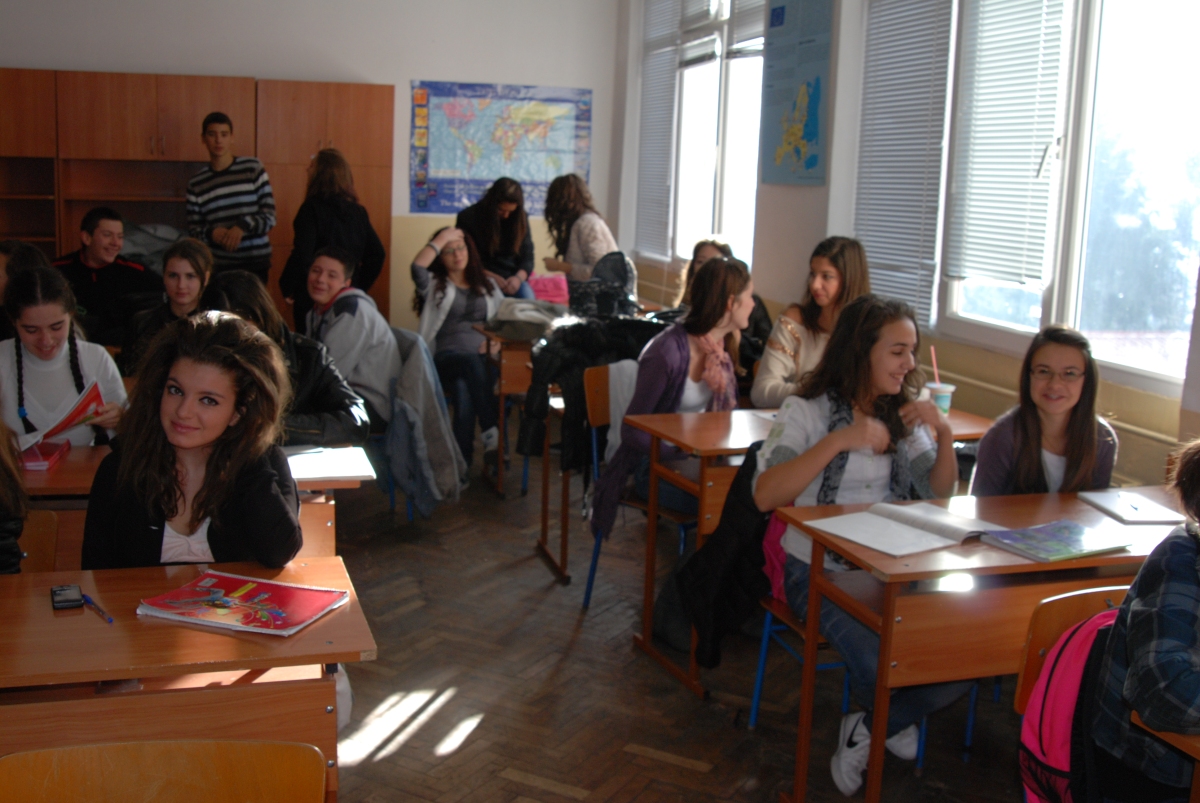I had the chance to speak with my classes over the last two weeks about the U.S. presidential election. While I stumbled over explaining the electoral college, and floundered when trying to find anything nice (or even unbiased) to say about the Republican platform, I enjoyed the opportunity to talk about the political process with my students.
Although Bulgaria, like most of Eastern Europe, is not known as a haven of racial tolerance, most of my students and colleagues seem to think Obama is a pretty cool guy. This is based more on his charisma, charm and good looks than his policies, at least where my students are concerned. When asking some of my 9th grade students how they would describe it was “intelligent, handsome, wealthy… a gangsta.” I also had to give the “why we don’t use the n-word” speech in this same conversation.
There are a couple of students who were not as pro-Obama as their peers. One of my students expressed the belief that Obama was only elected because he was black, because that made him new and exciting and stand out from everyone he was not. Another student approached me after class to tell me that Americans elected Obama because they care more about black people than white people. Another of my students was pro-Obama until I explained that he is in favor of same-sex marriage, unlike Romney. Upon hearing this, the student caused a bit of commotion in the back of the room and immediately became pro-Romney. The discussion was re-routed several times with his questions, like “if gay women are raising a child, who do they call mom?”
Other students asked perceptive questions, like “how do you feel about the changes made since Obama won in 2008?” [though, in more broken English]. They wanted to know about the good and the bad. We talked about drone strikes and the failure to close Guantanamo Bay, in addition to (in my opinion) triumphs like the Fair Pay Act and healthcare reform.
November 5th, I woke to get ready for school and I hesitated to get online as I usually do in the morning. I was deeply concerned that my Facebook newsfeed would be a series of lamentations over a Romney win. I wondered how I would explain that to my students. After doing the math on the time difference, I figured the election probably hadn’t even been called yet… but Obama had already reached 270 by the time I got online.
I arrived at school to congratulations from students, teachers, even the principal. The U.S. election results had been announced already in the Bulgarian media.
What struck me most about my students’ views on politics was what they were missing: hope. Student after student expressed a disinterest in politics, because things would never really change. They cited corruption and broken promises. I asked those who would be voting in the next election how they would choose a candidate. What kinds of qualities, values or goals would be important? I was told in response that it doesn’t matter who one votes for, they are all the same, all corrupt. Even some of my colleagues chimed in to say that many are disillusioned with Bulgaria’s version of democracy– all the politicians make promises they never fulfill, and so things are, if anything, getting worse in Bulgaria.
This year’s presidential campaign tried my patience. The rivalry between Democrats and Republicans is exhausting. But as mad as it makes me, and as stupid and ineffective as I find all this partisan bull-hockey, I’m glad that people care. I’m glad that so many are invested in our political process. I’m so grateful for a rhetoric of optimism and a hope for change.
